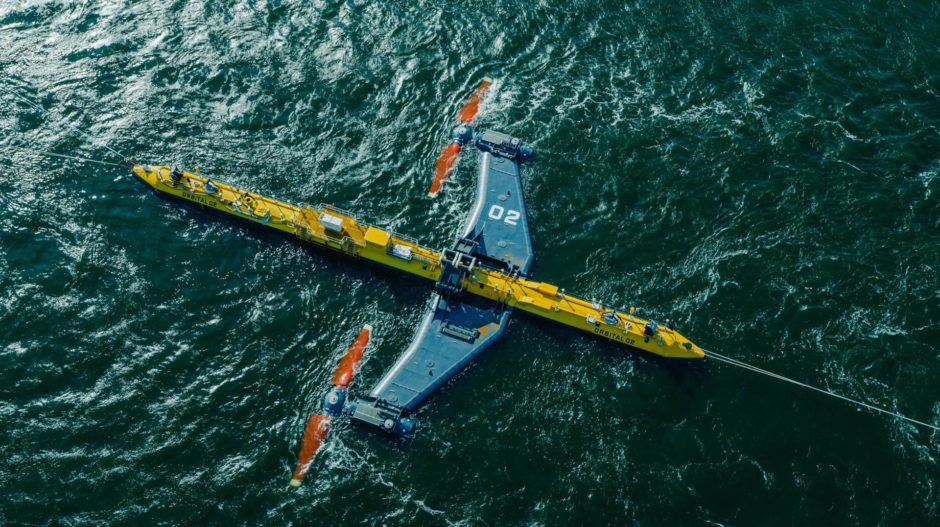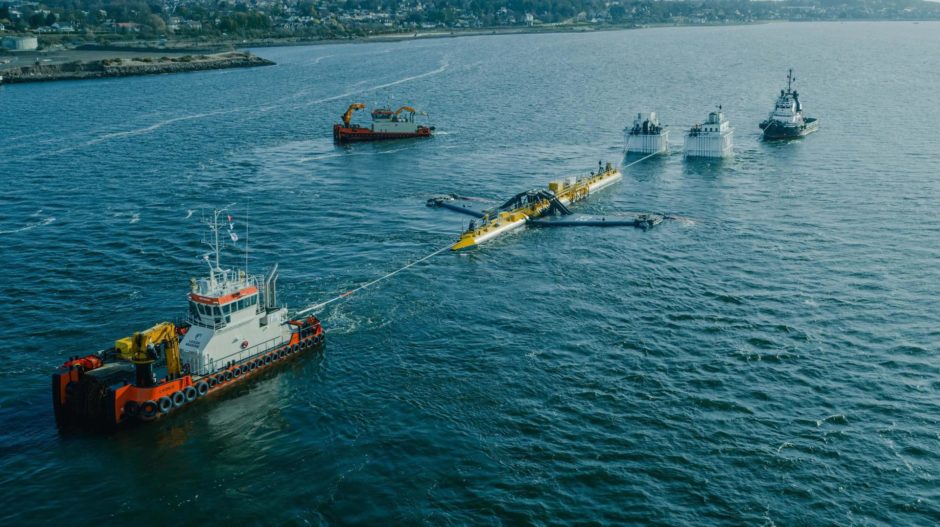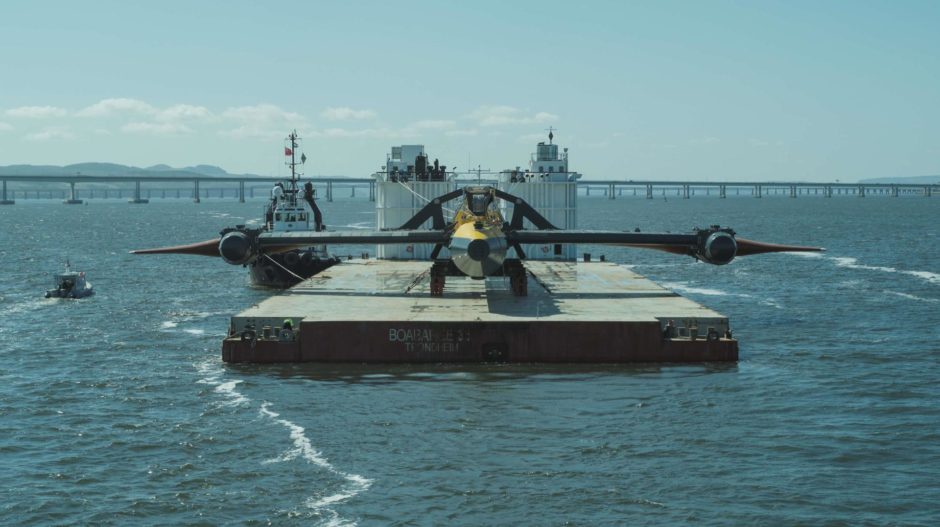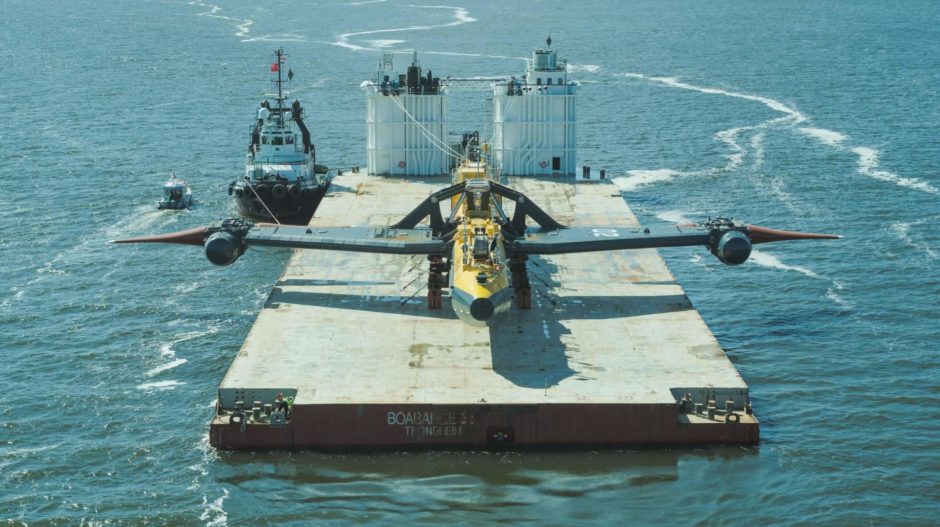
An Orkney firm has successfully launched the world’s most powerful tidal turbine.
Orbital Marine said its two-megawatt O2 machine went into the sea in the Port of Dundee earlier today (Thursday April 22).
The operation was managed by Osprey Heavy Lift and saw the 680-tonne tidal turbine transferred from the Forth Ports quayside facility in Dundee into the River Tay using a submersible barge.
The launch marks the completion of the turbine build, managed by Texo Fabrication, part of Aberdeenshire-based Texo Group, and the O2 will now be towed to Orkney.
It will there undergo commissioning before being connected to the European Marine Energy Centre, where it will become the world’s most powerful operational tidal turbine.
Scottish Renewables senior policy manager Ben Miller said the launch deserved “global attention this Earth Day”.
He added: “Orbital should be very proud of this contribution to engineering and the UK supply chain, and we look forward to its operation in Orkney, a fitting home for one of Scotland’s beacons of energy innovation.”
‘This is a huge milestone for Orbital’
Orbital chief executive Andrew Scott said: “This is a huge milestone for Orbital; the O2 is a remarkable example of British cleantech innovation, and the build we have completed here is an inspiring display of what a UK supply chain can achieve if given the opportunity – even under the extraordinary pressures of a pandemic.”
The O2 turbine started construction in the second half of 2019 and is the result of about 80% UK supply chain content.
From Scottish steelwork and main manufacturing through to anchors from Wales and blades from the south of England; the build is estimated to have supported more than 80 British jobs.
It was the first vessel launch from Dundee since shipbuilding in the city ended more than 40 years ago.
O2 is said to be able to generate enough clean, predictable electricity to meet the demand of around 2,000 UK homes and offset around 2,200 tonnes of CO2 production per year.
We firmly believe the transition to a net-zero environment will deliver a range of opportunities to the UK’s engineering and fabrication sectors.”
Chris Smith, Texo Group
Texo Group managing director Chris Smith said: “The O2 programme has given us a significant opportunity to demonstrate our multi-disciplinary capabilities, and our proactive approach to working collaboratively with clients.
“We firmly believe the transition to a net-zero environment will deliver a range of opportunities to the UK’s engineering and fabrication sectors and we are very proud to see Orbital’s O2 turbine launched today.”
Dundee City Council leader John Alexander said: “I’m very proud of the role that Dundee has played in helping to deliver this pioneering tidal turbine, and congratulate the team at Orbital Marine and Texo for their incredible efforts during the hardest year in recent memory.
‘Pivotal’ role
“Orbital Marine’s incredible piece of engineering will play a pivotal role in showcasing this technology and helping Scotland to achieve its ambition in tackling the climate emergency, further propelling Dundee into a city which is transforming itself into a hub for renewables and innovation.”
Orbital’s technology has been under continuous engineering development, including rigorous testing of scaled systems in both tank conditions and open ocean environments since the company was founded in 2002.
The company currently employs 32 people across offices in Kirkwall and Edinburgh.
Orbital’s O2 project has been supported through funding from the European Union’s Horizon 2020 research and innovation programme under the FloTEC project and the European Regional Development Fund through the Interreg North West Europe Programme under the ITEG project.
Support has also come under the framework of the OCEANERA-NET COFUND project and co-funding by the European Union’s Horizon2020 research and innovation programme.
The build of the O2 was further supported by the Scottish Government under the Saltire Tidal Energy Challenge Fund.
Recommended for you



